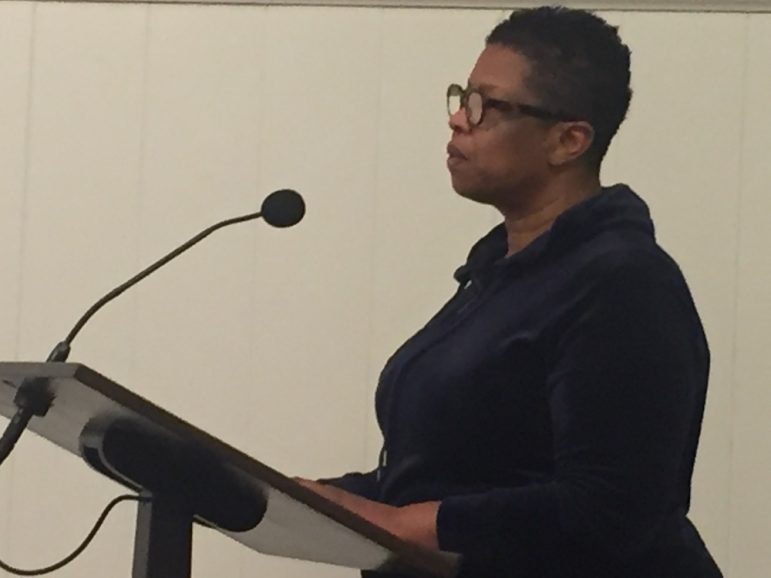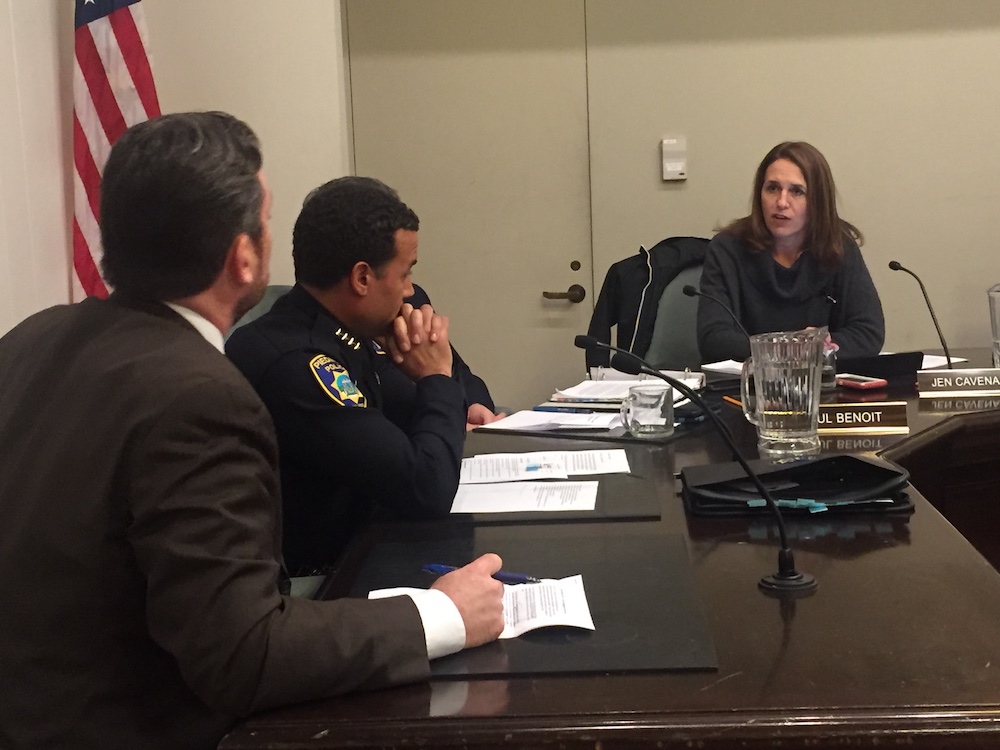PIEDMONT —- City Council members said Monday night they generally favor the idea of a police school resource officer on local campuses, but also encouraged police brass and school administrators to continue with research, outreach and opinion gathering ahead of an ultimate decision whether to go ahead with a program.
The city has already received a state grant in December of $391,599, under the California Healthcare, Research and Prevention Tobacco Tax Act of 2016, for operation of an SRO program for three years.
But it isn’t a given that the city will ultimately accept that grant. Police and schools officials, along with the co-president of the Piedmont Appreciating Diversity Committee, told the council there are concerns of finding the right officer for the job, about potential unfair treatment of students of color and starting the program and then, in three years, ending it because neither the city nor the school district can afford it.
City Administrator Paul Benoit acknowledged getting the state grant before a prospective program and policy was created “kind of put the cart before the horse.” So it is the process of gathering public opinion, seeing how SROs in other school districts operate, deciding how to best recruit such an officer and otherwise deciding what the schools and city want from the position that must begin now.
The goal, Piedmont police Chief Jeremy Bowers said, would be to have an SRO in place for the start of the 2019-2020 school year.
He listed four essential job functions for an SRO — counselor, teacher, social worker and — lastly, he stressed — conventional police officer, equipped with a firearm and body camera. Daily contact with students, teachers, staff and the community is also a must, Bowers said. An SRO would help connect students who need social services with said services.
That officer could also teach school faculty and staff about recognizing drug use and being under the influence, counsel students on life-related issues such as, family, suicide, mental health, relationship problems and sexual abuse and harassment. He or she also would probably be involved in “restorative justice,” in which students who commit crimes take part in making their victims, and the community, whole.
Randall Booker, Piedmont’s superintendent of schools, said he believes the biggest issues with which an SRO could help are helping curb student vaping and alcohol, marijuana and tobacco use, all significant problems in Piedmont schools as they are in most districts. This, he said, would happen through teaching and counseling, not discipline. In fact, Booker said he specifically would keep an SRO out of discipline issues entirely, except for serious problems for which he would call police anyway.
Booker said that, when he worked with the Albany Unified School District, a school resource officer there did great work, especially with gang suppression.

But he and Bowers said that, if an SRO is hired, there will likely be more student misconduct and illegal behavior detected and, naturally, reported. It was to that point that Piedmont Appreciating Diversity Committee’s Tonda Case wondered aloud whether students of color would draw more scrutiny that white or Asian students.
After the meeting, Case said the council discussion was informative and on point. She isn’t convinced hiring an SRO is the right way to go, but is withholding judgment for now, instead preferring to wait to see how the community discussion unfolds over the next several weeks.
“I’m open to talking about what the (SRO) position might look like,” she said.
Councilwoman Jen Cavanaugh said all Piedmont residents need to weigh in on the SRO position; a short online survey of opinion may be carried out. Councilman Tim Rood asked Bowers and Booker whether an SRO from another district could come to an upcoming council meeting and answer questions.
Cavanaugh said the School Board should take the lead in deciding whether it’s a good move, and that the city would likely follow the school trustees’ lead. Both the School Board and the City Council would have to approve establishing the position.
The PHS Parents Club will host a Jan. 24 meeting at which Bowers and Booker will talk again about the SRO position.
“We have the opportunity to assess the potential value of this new program in Piedmont and provide input in the school board’s decision,” said Mary Alice McNeil, the PHS Parents Club president. That meeting runs from 7 to 8:30 p.m. at the student center.
There is no deadline for establishing the SRO position, Bowers said, but the city must file a progress report to the state by April 19.

If an armed police officer is required, but told not to function as an armed police officer unless for serious problems where an officer would be called anyway (Sup’t Booker) and we really are looking for a social worker and monitors against drug use, why don’t we hire a social worker and recruit community volunteers as hall/bathroom monitors? If this is a 3-year program grant, what will be created during that 3 year period that will be of lasting benefit to the District and to the City, other than a perceived need to continue the position, so not to be considered to be undermining the safety of our kids? Where are the data from other similar schools — not just anecdotes, but real data — that show that a permanent armed police presence on our high school campus will deliver the benefits described by the Chief and the City Manager? We haven’t heard any input from teachers or students. The City Manager is understating matters when he says that obtaining the grant before a public deliberative assessment of need and the appropriateness of the solution to that need. Or is this really about a ‘remove your tennis shoes for the TSA’ symbolic demonstration? I’m hoping for very robust and concrete discussion at the 1/24 meeting and encourage broad attendance by youth and adults, not just limited to parents of high school students. This affects our whole community.